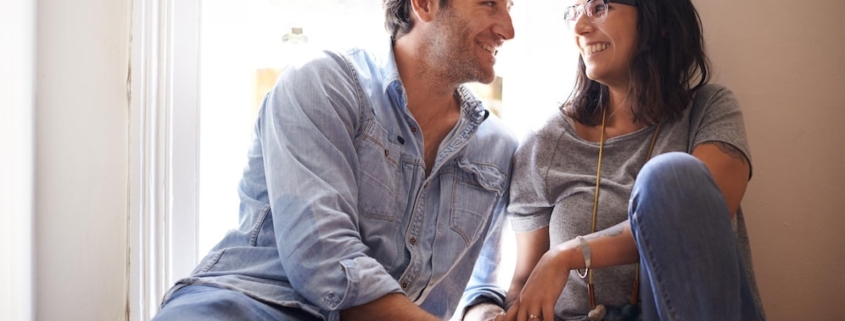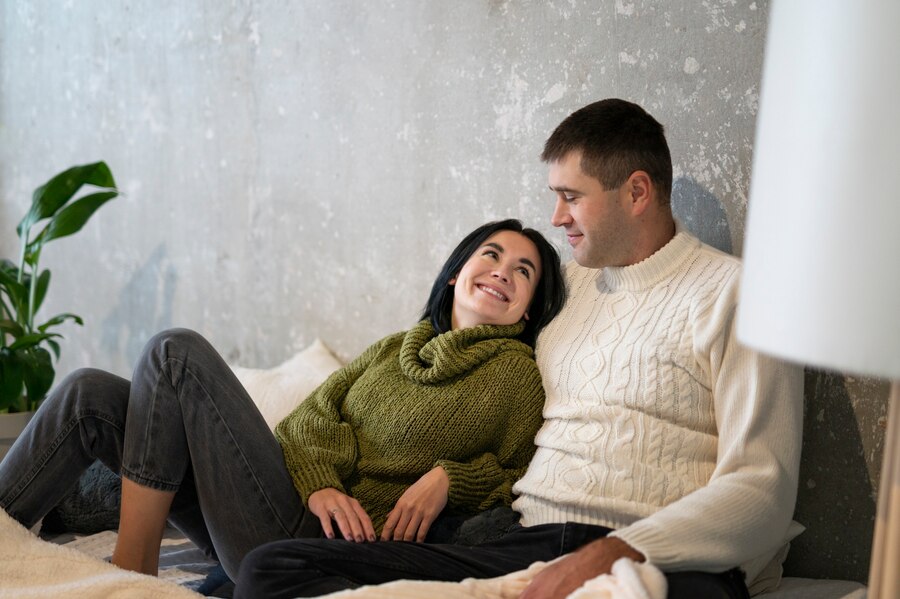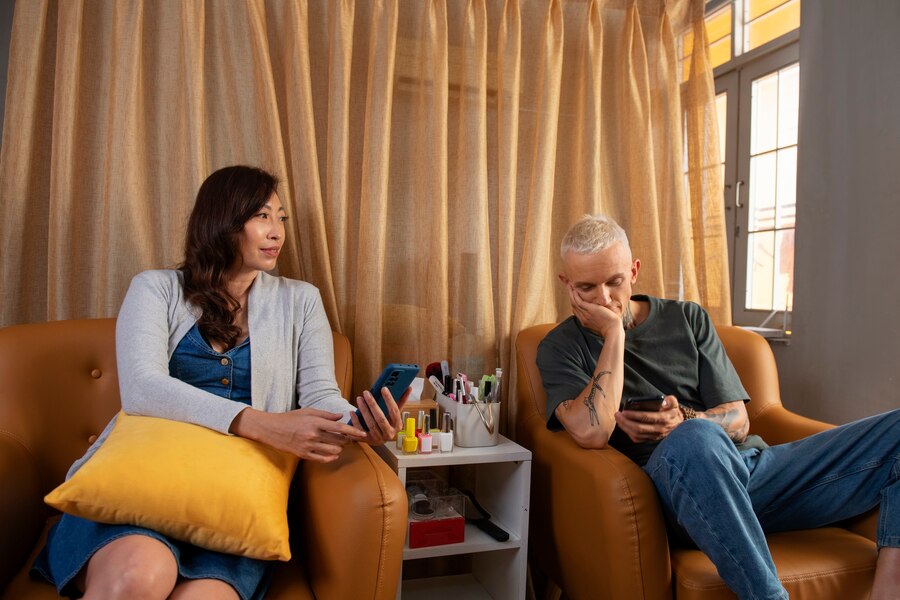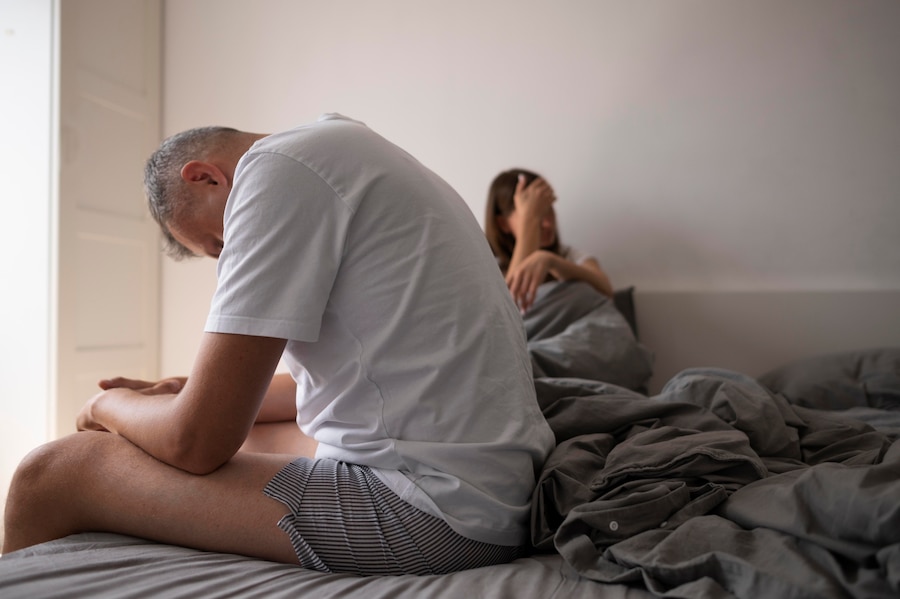In the journey of love, couples often encounter moments of joy, growth, and profound connection. Yet, like any path worth treading, it’s also fraught with challenges that can strain even the strongest bonds. When these challenges involve substance abuse or addiction, the very fabric of a relationship can begin to unravel, leaving both partners feeling isolated, misunderstood, and overwhelmed. The conventional wisdom of addressing addiction often focuses on the individual, but what happens when the addiction affects not just one person, but the relationship as a whole?
Enter couples rehab—a transformative approach designed to heal not just the individual, but the relationship itself. Couples rehab offers a unique and holistic path to recovery, emphasizing the importance of mutual support, understanding, and growth. By addressing the dynamics of the relationship alongside individual struggles, couples rehab provides a comprehensive framework for healing that can rejuvenate both partners and their bond.
In this article, we will delve into the multifaceted world of couples rehab. We’ll explore what it entails, why joint recovery is crucial, and the various programs available to couples seeking to rewrite their love story. We’ll also highlight the numerous benefits of undergoing rehab together, from enhanced communication skills to rebuilding trust and intimacy. However, the journey is not without its hurdles; we’ll discuss common challenges such as co-dependency, relapse risks, and the delicate balance between individual and joint therapy.
Couples Rehab Services
Understanding Couples Rehab
Couples rehab is an innovative approach to addiction recovery that focuses on treating both partners simultaneously, recognizing that addiction often affects more than just the individual. This comprehensive program aims to repair and strengthen the relationship while addressing the substance abuse issues at hand. By fostering a collaborative environment, couples rehab seeks to create a synergistic path to recovery, where both partners can heal together.
What is Couples Rehab?
Couples rehab, also known as couples therapy for addiction or dual recovery programs, is a specialized form of treatment designed for couples who are struggling with substance abuse. Unlike traditional rehab programs that treat individuals in isolation, couples rehab integrates the recovery process for both partners. It combines individual therapy sessions with joint counseling, creating a holistic approach that addresses the unique dynamics and challenges of a relationship affected by addiction. The goal is to help both partners understand the root causes of their substance abuse, develop healthier coping mechanisms, and build a stronger, more supportive relationship.
The Importance of Joint Recovery
The concept of joint recovery is central to couples rehab. Addiction can strain even the strongest relationships, leading to mistrust, communication breakdowns, and emotional distance. Joint recovery recognizes that healing is more effective when both partners are involved in the process. By working together, couples can better understand each other’s struggles and provide mutual support. This collective effort not only aids in overcoming addiction but also helps in rebuilding the relationship on a foundation of trust, understanding, and shared commitment to sobriety.
Types of Programs Available
Couples rehab programs come in various forms, tailored to meet the diverse needs of different couples. Some of the most common types include:
- Inpatient Programs: These intensive programs require couples to stay at a treatment facility for a set period, usually ranging from 30 to 90 days. Inpatient programs offer a structured environment with round-the-clock support, making them ideal for couples with severe addiction issues.
- Outpatient Programs: Outpatient rehab allows couples to live at home while attending scheduled therapy sessions and support groups. This type of program is suitable for those with less severe addiction or for couples who have completed an inpatient program and need ongoing support.
- Intensive Outpatient Programs (IOP): IOPs are a middle ground between inpatient and outpatient rehab. They offer more intensive treatment than standard outpatient programs but allow couples to return home each day. These programs typically involve several hours of therapy and counseling each week.
- Aftercare Programs: Recovery doesn’t end after completing a rehab program. Aftercare provides ongoing support to help couples maintain their sobriety and continue building a healthy relationship. This may include regular check-ins with a therapist, support group meetings, and relapse prevention planning.
By understanding the various aspects of couples rehab, from its foundational principles to the different types of programs available, couples can make informed decisions about their path to recovery. This knowledge empowers them to choose the best approach for their unique situation, setting the stage for a transformative journey towards healing and renewed love.
Benefits of Couples Rehab
Couples rehab offers a transformative journey for partners looking to heal together. By focusing on mutual support and understanding, couples rehab provides a unique opportunity to address issues that may be affecting both individuals and their relationship. Here are some of the key benefits that couples can expect from participating in such programs:
Enhanced Communication Skills
One of the most significant benefits of couples rehab is the improvement in communication skills. Many relationships suffer from misunderstandings and the inability to effectively express thoughts and emotions. In a couples rehab setting, partners are guided by trained therapists who help them develop healthier ways to communicate. Techniques such as active listening, non-verbal communication, and conflict resolution are emphasized. As couples learn to articulate their needs and listen to each other more attentively, they often experience a deeper emotional connection and a reduction in conflicts.
Rebuilding Trust and Intimacy
Addiction and behavioral issues can severely damage trust and intimacy in a relationship. Couples rehab provides a structured environment where partners can work on rebuilding these essential components. Through various therapeutic exercises and activities, couples are encouraged to share their feelings, fears, and hopes with each other. This open and honest communication fosters a sense of safety and trust. Additionally, the program often includes activities designed to rekindle intimacy, such as couple’s yoga, shared hobbies, and guided bonding exercises. By working through their issues together, couples can restore the trust and intimacy that may have been lost.
Supportive Environment for Healing
Another crucial benefit of couples rehab is the supportive environment it offers. Unlike individual rehab programs, couples rehab allows partners to support each other through the recovery process. This mutual support can be incredibly motivating and comforting. Being surrounded by other couples who are facing similar challenges also creates a sense of community and reduces feelings of isolation. In this nurturing environment, couples can focus on healing without the distractions and stresses of daily life. The presence of professional counselors and therapists further ensures that couples receive the guidance and support they need to navigate their journey to recovery.
In summary, couples rehab offers a comprehensive approach to healing that addresses both individual and relational issues. By enhancing communication skills, rebuilding trust and intimacy, and providing a supportive environment, couples rehab can significantly improve the quality of life for both partners. This form of therapy not only helps couples overcome their immediate challenges but also equips them with the tools they need for a healthier, more fulfilling relationship in the long run.

Challenges in Couples Rehab
While Couples Rehab in Orange County offers a promising path to mutual healing and recovery, it is not without its challenges. Recognizing and preparing for these potential obstacles can significantly enhance the chances of a successful rehabilitation experience.
Addressing Co-dependency
One of the foremost challenges in couples rehab is addressing co-dependency. Co-dependency occurs when one partner becomes excessively reliant on the other for emotional or psychological support, often to the detriment of their own well-being. This dynamic can complicate the recovery process, as it may hinder each individual’s ability to develop independent coping mechanisms and self-sufficiency. Therapists in couples rehab programs work diligently to identify and dismantle these patterns, helping each partner cultivate a sense of autonomy while still maintaining a supportive relationship.
Managing Relapse Risks
Relapse is an inherent risk in any recovery journey, and it becomes even more complex when both partners are undergoing treatment simultaneously. The likelihood of one partner relapsing can increase the risk for the other, creating a cyclical pattern that is difficult to break. Couples rehab programs must equip both individuals with robust relapse prevention strategies, including recognizing triggers, developing healthy routines, and fostering open communication about their struggles and progress. By maintaining a vigilant approach to managing relapse risks, couples can better navigate the ups and downs of recovery together.
Balancing Individual and Joint Therapy
Another significant challenge is finding the right balance between individual and joint therapy. While joint therapy sessions are essential for addressing relational issues and improving communication, individual therapy is equally critical for personal growth and self-discovery. Striking this balance ensures that each partner can work on their own issues without feeling overshadowed by the other’s needs. Skilled therapists in couples rehab programs design customized treatment plans that integrate both individual and joint sessions, allowing for a holistic approach to recovery that respects each partner’s unique journey.
Navigating these challenges requires dedication, open-mindedness, and a willingness to confront uncomfortable truths. However, couples who commit to the process often find that the rewards far outweigh the difficulties, leading to a stronger, more resilient partnership.
Rewrite Your Love Story: Couples Rehab Offers a Path to Healing
Rewriting your love story through couples rehab can be a transformative journey towards healing, growth, and renewed commitment. By engaging in a structured program designed to address the unique dynamics of your relationship, you and your partner can uncover the underlying issues that have been hindering your connection. Understanding the importance of joint recovery, you both embark on a path where communication skills are enhanced, trust and intimacy are rebuilt, and a supportive environment fosters mutual healing.
While the journey is not without its challenges—such as addressing co-dependency, managing relapse risks, and balancing individual and joint therapy—the rewards of enduring these trials are immense. Couples rehab offers a comprehensive approach that not only helps each partner confront their individual struggles but also strengthens the relationship as a whole.
In the end, the effort invested in couples rehab can lead to a deeper, more resilient bond. It provides the tools and insights necessary to navigate future challenges together, fostering a healthier and more fulfilling relationship. By choosing this path, you are making a conscious decision to prioritize your relationship’s wellbeing, ensuring that your love story continues to evolve positively. This commitment to mutual recovery and growth can result in a partnership that is not only enduring but also enriched with newfound understanding and compassion.

FAQs
- FAQ: What does the program “Rewrite Your Love Story” at Couples Rehab offer to couples seeking a path to healing? Answer: The “Rewrite Your Love Story” program at Couples Rehab offers couples a comprehensive path to healing through evidence-based therapies, relationship counseling, and addiction treatment tailored to address the unique needs of partners seeking recovery together.
- FAQ: How do the services provided by Couples Rehab under the “Rewrite Your Love Story” program support couples in rewriting their love story? Answer: The services provided by Couples Rehab under the “Rewrite Your Love Story” program support couples in rewriting their love story by fostering communication, rebuilding trust, and empowering partners to navigate the challenges of addiction recovery as a unified, resilient team.
- FAQ: Are the treatment plans at Couples Rehab’s “Rewrite Your Love Story” program personalized to address the specific needs of each couple? Answer: Yes, the treatment plans at Couples Rehab’s “Rewrite Your Love Story” program are personalized to address the specific needs, goals, and dynamics of each couple, ensuring that the program is tailored to support the unique journey of healing and recovery for partners.
- FAQ: What role does relationship counseling play in the “Rewrite Your Love Story” program at Couples Rehab? Answer: Relationship counseling is a fundamental aspect of the “Rewrite Your Love Story” program at Couples Rehab, providing couples with a safe and supportive environment to address relationship challenges, heal from past trauma, and build a foundation for a healthy, sober partnership.
- FAQ: Can Couples Rehab’s “Rewrite Your Love Story” program accommodate couples with diverse backgrounds and relationship dynamics? Answer: Yes, Couples Rehab’s “Rewrite Your Love Story” program is designed to accommodate couples with diverse backgrounds and relationship dynamics, recognizing and addressing the individualized needs and dynamics of each partnership.
- FAQ: How does Couples Rehab integrate addiction treatment with relationship-focused therapies in the “Rewrite Your Love Story” program? Answer: Couples Rehab seamlessly integrates addiction treatment with relationship-focused therapies in the “Rewrite Your Love Story” program, emphasizing the interconnectedness of recovery and relationship healing to support couples in creating a new, healthier love story.
- FAQ: Are experiential therapies part of Couples Rehab’s “Rewrite Your Love Story” program to support couples in addiction recovery? Answer: Yes, Couples Rehab’s “Rewrite Your Love Story” program incorporates experiential therapies to support couples in addiction recovery, offering activities and exercises that encourage teamwork, empathy, and connection within the relationship.
- FAQ: What sets Couples Rehab’s “Rewrite Your Love Story” program apart from traditional addiction treatment programs? Answer: Couples Rehab’s “Rewrite Your Love Story” program stands out due to its focus on couples in recovery, offering a specialized combination of addiction treatment and relationship therapy to support partners in rewriting their love story and fostering lasting healing and growth.
- FAQ: Can the services provided under the “Rewrite Your Love Story” program at Couples Rehab address issues beyond addiction recovery, such as communication and intimacy? Answer: Yes, the services provided under the “Rewrite Your Love Story” program at Couples Rehab address a broad range of relationship dynamics, including communication, intimacy, trust-building, and conflict resolution, to facilitate a thriving, sober partnership.
- FAQ: How does Couples Rehab measure the success of the “Rewrite Your Love Story” program and its services for couples in addiction recovery? Answer: Couples Rehab measures the success of the “Rewrite Your Love Story” program and its services for couples in addiction recovery through ongoing evaluations, participant feedback, and long-term outcomes, ensuring the effectiveness and impact of the program in supporting couples on their path to healing.



















